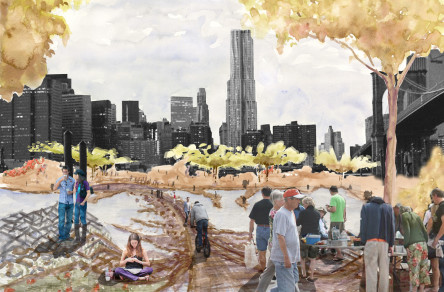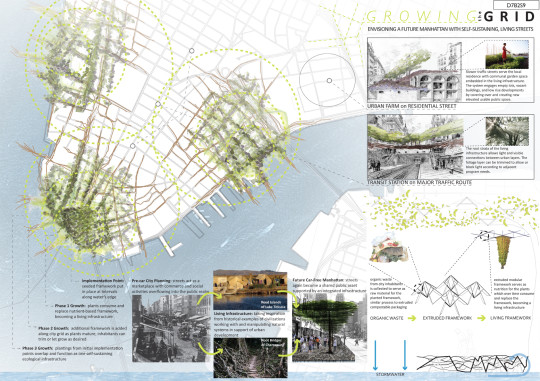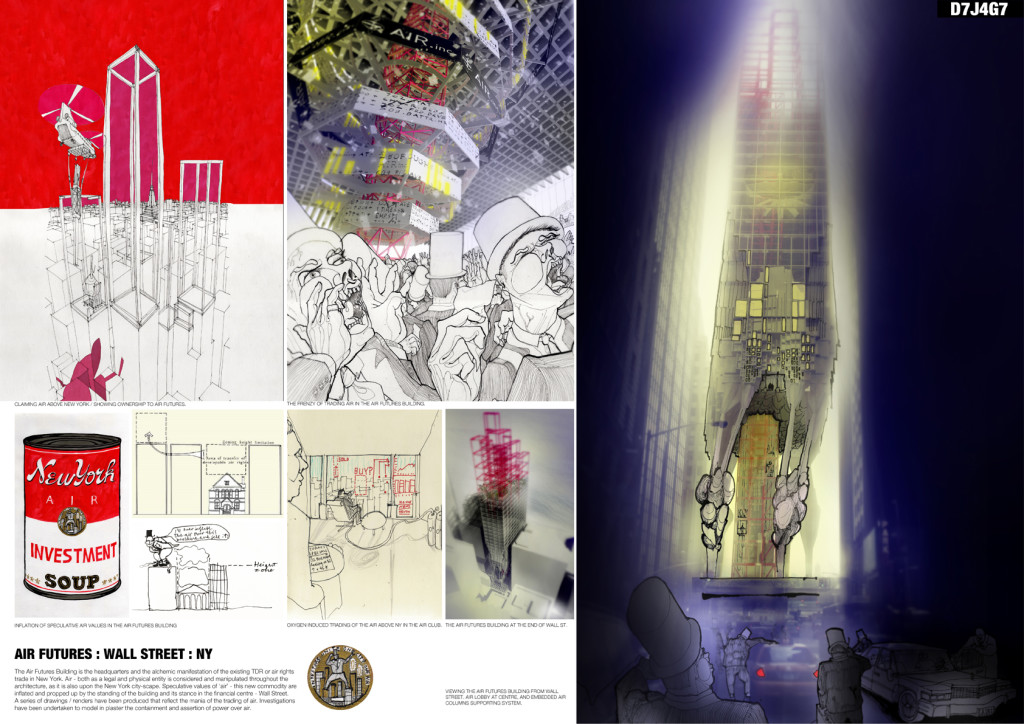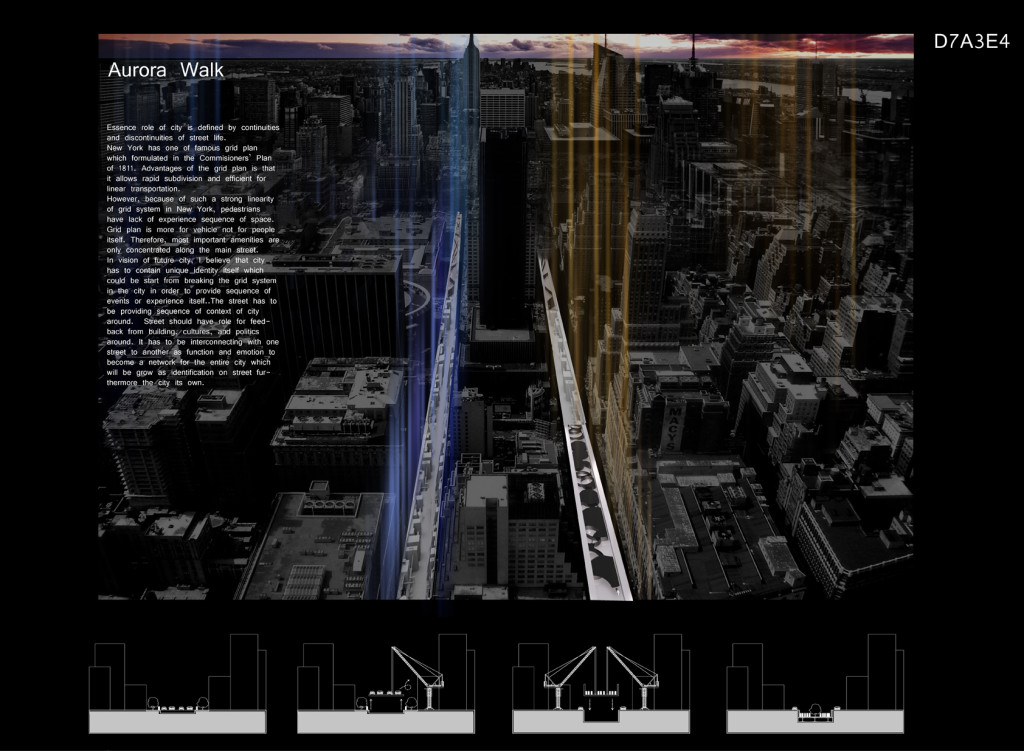Info:
Title: Growing the Grid - Code: D7B2S9Contest: NY / 2012
By: M. Dickemann - S. Ruzomberka
Views: 3156 Likes: 0
Votes:
JOSHUA PRINCE-RAMUS3 EVA FRANCH I GILABERT3 ROLAND SNOOKS3 SHOHEI SHIGEMATSU2 ALESSANDRO ORSINI1 MITCHELL JOACHIM02.0
Growing the Grid

 Re-envisioningManhattanwith self-sustaining living streets ”Growing the Grid” depicts a futureManhattanand the development of a new urban infrastructure. Urban planning priorities have changed from a focus on personal automobiles to a community focus. The elimination of personal automobiles presents opportunity for the street grid to be transformed from congested, traffic routes, to a versatile public domain with the ability to act as an extension of the commerce and social activities on adjacent properties. ”Growing the Grid” looks to the history of New York’s street grid and its early manifestation as a marketplace in contrast to its present condition as a route to move through. Implementation of the new urban infrastructure is planned as a gradual process with specific starting points and a projected timeline for the transformation process.
Re-envisioningManhattanwith self-sustaining living streets ”Growing the Grid” depicts a futureManhattanand the development of a new urban infrastructure. Urban planning priorities have changed from a focus on personal automobiles to a community focus. The elimination of personal automobiles presents opportunity for the street grid to be transformed from congested, traffic routes, to a versatile public domain with the ability to act as an extension of the commerce and social activities on adjacent properties. ”Growing the Grid” looks to the history of New York’s street grid and its early manifestation as a marketplace in contrast to its present condition as a route to move through. Implementation of the new urban infrastructure is planned as a gradual process with specific starting points and a projected timeline for the transformation process.
Beginning at the water’s edge, whereManhattanbegan as a merchant city, the new infrastructure grows both into the city and out over the water creating new land forms and manipulating the existing land. Eventually the boundaries of growth overlap, overlayingManhattanwith a new living infrastructure. Taking inspiration from natural systems, “Growing the Grid” works as an integrated, self-contained system that begins to address many of the present problems of Manhattan including stormwater management, transportation, air quality, health, and localized agriculture. The current street grid is overlaid with a modular framework which is pre-seeded to sprout and grow in two horizontal layers as controlled by the framework.
The root strata becomes a new porous ground plane while the foliage becomes a patterned canopy layer. These planes have the ability to vary in elevation and horizontal spread depending on how the initial modular framework is laid out. The framework is an extruded construction of organic matter which serves as the initial nutrient source for plant growth. The extrusion process is similar to current technology for creating compostable packaging material and helps minimize waste output from city inhabitants by reusing it. Gradually, by grafting and absorbing, the plants completely replace the initial framework and become a living framework. The living infrastructure offers the ability for personalized manipulation depending on voluntary inhabitant interaction. The ability to be controlled by local inhabitants, allows for “Growing the Grid” to take on a variety of forms as it spreads throughout the city.
With the implementation of “Growing the Grid”, the present day city is altered on several levels. Introducing a natural system, which requires time to become established, forces the population of the city to grow with their urban context. A slower, more permanent timeline is introduced. A greater focus is placed on the cultivation of community space and the interaction of local inhabitants with this space. Once again the street grid ofManhattanbecomes public domain accommodating a variety of uses and bringing the city scale down to a more human level. Agriculture, commerce, and social activities can all be integrated into street grid. Currently separate systems, stormwater management and waste disposal, are integrated into “Growing the Grid”, establishing a more cohesive and sustainable infrastructure. Inhabitants are able to participate with and control their local environment by manipulating the new structure. This improved closed-loop system affectsManhattanon a variety of scales, returning the city to the people and providing a urban environment more in tune with natural systems.






